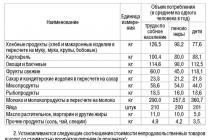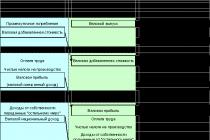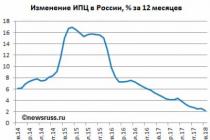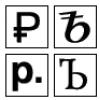In the banquet hall of an expensive restaurant on Brestskaya Street on August 6, 2013, a dignified feast was going on. Celebrated the upcoming holiday - Builder's Day. In the center sat an honored guest, head of the Moscow Construction Complex Marat Khusnullin. He was surrounded by "colleagues" - large metropolitan developers and rentiers, more than 40 people in total. In the midst of the party, Khusnullin turned to the audience: “Why do you all go to me separately, and I tell you the same words? Organize yourself." This was not impromptu - at that moment Khusnullin actually announced the proposal of his boss, Mayor Sergei Sobyanin. The chairman of the board of directors of Guta-Development, Artem Kuznetsov, immediately responded to this proposal: “Why not. Let's get organized."
A couple of days later, Artem Kuznetsov, co-owner of Binbank and Inteko construction companies, PIK Group of Companies Mikail Shishkhanov, co-owner of Absolut Group of Companies Alexander Svetakov, co-owner of Promsvyaznedvizhimost Group of Companies Dmitry Ananiev, co-owner of Gostiny Dvor Mikhail Khubutia and several other businessmen agreed on the establishment of the Moscow Investors Club.
Today the club includes representatives of 45 companies, including banks. All of them - big players real estate market, the “entrance ticket” to the association assumes that the company has at least 30 billion rubles of annual turnover and Moscow projects with a total footage of at least 1 million square meters. m. These businessmen are often direct competitors, but together they skillfully lobby for initiatives beneficial to all, not only at the municipal, but also at the federal level.
How do the largest businessmen, who have made their fortune in real estate and construction, negotiate with each other and with the authorities? And what can't they agree on?
New order
In October 2010, the mayor was replaced in Moscow, and a year later, the long-term curator of the Moscow Construction Complex, Vladimir Resin, left his post. During its heyday, the Moscow Stroykompleks commissioned real estate worth $33 billion. Marat Khusnullin, the former Minister of Construction of Tatarstan, was appointed to lead the industry. One of its first decisions, the new city administration actually imposed a moratorium on all new construction projects regardless of scale. Developers were forced to stop work, despite the fact that they had documents in their hands, they were losing time and money.
“The new government wanted to demonstrate two fundamental things,” says Artem Tsogoev, managing partner of the Moscow Central Real Estate Exchange, “to stop infill development and give a clear signal that the old order will no longer exist.”
Developers have been waiting for at least a year for the authorities to sort out the situation on the market.
According to Inteko President Oleg Soloshchansky, construction is one of the most regulated sectors of the economy and involves constant contact with the authorities, but at that moment the natural reaction of officials was a kind of moratorium on communication with his company.
Even before his official appointment, the future head of the Moscow Construction Complex began to actively study the market, requested statistics on volumes investment projects and companies. He began to go around construction sites, came to visit businessmen. For example, Andrey Grudin, President of Pioneer Group of Companies, with a total portfolio of projects in Moscow of 955,000 sq. m, met Khusnullin when he arrived at a construction site in Mitino, where the company was then building the LIFE Mitinskoye residential complex. Oleg Soloshchansky met Khusnullin when the head of the construction complex arrived at the Inteko office in Nikitsky Lane. The total footage of Inteko's projects in Moscow is 2.9 million square meters. m. For investors, the new head of the Stroykompleks gave the impression of an energetic person, “damn hard-working”. “Not a builder, but it was clear that he was an effective manager,” Soloshchansky recalls.
One of the key decisions of Sobyanin and Khusnullin was the cancellation of the investment contract - a document that determined what could be built and how much of the new space should go to the city. Now the boundaries of the construction site, the type and footage of the building were determined town planning plan land plot (GPZU). It began to be issued by a specially created urban planning and land commission (GZK), which was personally headed by Mayor Sergei Sobyanin. Working groups headed by the mayor's deputies for construction and property, Marat Khusnullin and Natalya Sergunina, are of great importance for resolving development issues. Instead of a natural share (in square meters) the investor began to pay the city with money in the form of taxes, payments for rent and for changing the type of permitted use of land. New order was called upon to resolve the issue of behind-the-scenes distribution of construction sites under the previous government. However, according to Artem Tsogoev, the new rules brought clarity only formally.
Investors, whose projects were stuck in the change of power, began to break into the city administration with the same questions: permits, taxes, regulations, installment plans and other important problems for every builder. “In an informal setting, we met with Khusnullin, discussed issues in clubs,” says Mikhail Khubutia. He recalls that he called on the city builders to unite even under the previous mayor, but the idea was not in demand then. “In the city, everything was arranged in such a way that after the change of mayor, everyone was equidistant,” says Soloshchansky.
Billions and millions

The idea of a lobbying association seemed successful not only to businessmen. “The club is a place where businessmen will offer their ideas, and in this way we will be able to understand what investors expect from the city,” Khusnullin tells Forbes. At the request of Sergei Sobyanin, the club remained an organization without the formation of a legal entity, so as not to "turn into a bureaucratic body."
The entrance conditions of the club, formulated by the Moscow government, actually closed the door to representatives of small and medium-sized businesses.
A company that was a member of the club was supposed to receive at least 30 billion rubles in annual revenue (at that time - about $ 1 billion) and implement projects in Moscow with a footage of at least 1 million square meters. There were about 30 such companies at that time. m, - says Konstantin Timofeev, chairman of Moskomstroyinvest - a specialized committee that works with the Investors Club. - What legislative initiatives can it offer us? It’s hard to imagine… after all, to participate in the club, you will have to maintain a whole staff of lawyers, which costs a lot.”
The club's staff includes several lawyers, including an executive director who deals with the rules and agendas of meetings. Companies provide their lawyers to prepare draft regulations. Naturally, their activity directly correlates with the company's interest in a particular initiative.
There are different formats of meetings. In addition to official meetings chaired by Sergei Sobyanin twice a year, attended by top officials of companies, businessmen meet with the mayor's deputies for construction, property and transport blocks. Such working meetings with Marat Khusnullin, Natalia Sergunina and Maxim Liksutov (Head of the Department of Transport of the Moscow Government) are held at least once a quarter. Technical issues with department directors are worked out in working groups. Depending on the nature of the issue, representatives of interested companies come to these meetings.
Extended boards chaired by the mayor are held in hall No. 500 in the city hall building at 13 Tverskaya, behind closed doors.
“You shouldn't think that after the press leaves, we immediately begin to divide the money there,” explains a major Moscow developer, a member of the club.
“It’s just a lively discussion and words are not always carefully chosen, why should outsiders hear this?” he says.
However, there are still informal meetings. The budget of the club is formed with the calculation of payment for informal events and feasts. “Artem [Kuznetsov] likes to arrange holidays,” says Oleg Soloshchansky. Informal meetings were held at Krasny Oktyabr, where Guta-Development restored the Imperial Yacht Club, and at Gostiny Dvor, where Mikhail Khubutia was the formal host of the meeting. Meetings are held not only in Moscow - for example, entrepreneurs met in Cannes during the international exhibition MIPIM.
Today the club, according to Moskomstroyinvest, includes 45 companies, including banks. In addition to the already named ideological inspirers, the members of the organization are God Nisanov, Samvel Karapetyan, Andrey Molchanov. Among the participants are the construction giants of the Luzhkov era - DSK-1, SU-155, PIK Group, Donstroy Invest, as well as companies that have come to the fore over the past 5–7 years: Pioneer Group, "MR-groups", "Morton". The lists of the club include the construction divisions of Oleg Deripaska, Mikhail Prokhorov, Lev Leviev, Vadim Moshkovich. True, Deripaska and Prokhorov never came to the meetings of the club.
Small pleasures
In 2012, there was a fierce discussion in the mayor's office of a new initiative of the city authorities on a simplified procedure for the seizure of land in the New Territories of Moscow for the construction of infrastructure. The large owners of plots near Moscow who were present in the hall frowned and listened with distrust to the representatives of the property and construction blocks of the government. One participant recalled his neighbor expressing concern about the idea. “Listen, something is scary to me,” one landlord near Moscow nudged another with his elbow. “Imagine that first they come to me, then to you ... Officials, they are like that ... they will tighten up the justification for the needs of the city, and then they will take away the land in the interests of some private owner, whom I interfere with.”
Gradually, regular meaningful communication between the Investors Club and officials began. “We were introduced to some initiatives of the city in order to hear our reaction. Or not to hear, ”Andrey Grudin smiles. How often have businessmen managed to defend their point of view during these two years? As the inventory of successful club initiatives shows, this is not uncommon.
“We have achieved a smooth introduction of the real estate tax rate, which since last year has been tied to the cadastral, and not to book value”, - lists Artem Kuznetsov. After revaluation cadastral value buildings grew by an average of 80%, said Dmitry Malkin from the law firm Goltsblat BLP. The new taxation procedure based on the cadastral value was felt first of all by the owners of large shopping centers and offices. For example, the cadastral value of the Vremena Goda shopping center, owned by the fund, in which Ruben Vardanyan and Gagik Adibekyan invest, was about 6 billion rubles, and the new cadastral value was about 11 billion rubles.
Before tax rate was 2.2% of the book value of the building. Lobbyists convinced the Moscow government that it should be reduced to 0.9% in 2014 and then gradually increased to 2% in 2018. “This allowed us to adapt,” Kuznetsov sums up. A significant argument in a dispute with officials could simply be a refusal to pay taxes. “If they didn’t pay taxes on time, then a penalty would run up,” says Malkin. “It turns out that a business could simply borrow money from the budget, but such behavior will create additional tax risks for the company.”
In the context of the crisis in 2014, Moscow officials were forced to respond more actively to the club's initiatives. Construction is one of the main branches of the Moscow economy. At the beginning of 2015, Sergei Sobyanin estimated the total annual investment in the construction industry at 1 trillion rubles. Therefore, the anti-crisis program of the Moscow government, developed by Moscow officials at the beginning of the year, included many ideas and proposals from the Investors Club.
Starting a development project, the investor is often forced to change the type of legal use of the land plot on which development is supposed. The fee for changing the type of permitted use of land can reach up to 500 million rubles or more.
“At the entrance to the project, you have to pay serious money, and now many companies are experiencing a shortage of liquidity,” notes a Moscow developer, a member of the Investors Club.
At the beginning of the year, having listened to the proposals of businessmen, the Moscow government issued a decree allowing payment in installments. If the payment does not exceed 100 million rubles, the installment plan is provided for a year, from 100 million to 500 million rubles - for three years, and if the change of type costs more than 500 million rubles - for six years.
 The Moscow government provides business not only tax relief. “According to the regulations, we are building parking lots for new houses. Their occupancy is on average 30-40%, at best - 60%. Basically, we are wasting money because there are no car parks,” says a member of the board “ LSR Group”, Managing Director in Moscow Ivan Romanov. This topic became the subject of discussion at the meeting of the club. Now, when issuing a building permit (GPZU), the town planning and land commission allows the construction of fewer parking lots than the standard suggests. But this does not apply to all projects. The club of investors does not intend to stop there.
The Moscow government provides business not only tax relief. “According to the regulations, we are building parking lots for new houses. Their occupancy is on average 30-40%, at best - 60%. Basically, we are wasting money because there are no car parks,” says a member of the board “ LSR Group”, Managing Director in Moscow Ivan Romanov. This topic became the subject of discussion at the meeting of the club. Now, when issuing a building permit (GPZU), the town planning and land commission allows the construction of fewer parking lots than the standard suggests. But this does not apply to all projects. The club of investors does not intend to stop there.
Zone of Special Interests
Club members' ambitions now extend even to the solution of the most serious issue in the construction industry - the use of the territories of dying or already mothballed industries. total area the industrial zone in Moscow is 18,800 hectares - this is 17% of the city's area (within the old boundaries). Such objects have an intricate structure of ownership of property and land, where the interests of federal departments, the municipality and private owners are intertwined. Often, the owner, who is not satisfied with the redevelopment project of the industrial zone, can, in fact, single-handedly stop the rest of the co-owners-investors.
In the middle of last year, the Investors' Club presented its version of the draft law on the development of industrial zones for consideration by officials. The lawyers of club members Dmitry Ananiev and Mikail Shishkhanov participated in its development. The bill will help owners land plots organize and arrange for construction. To do this, they are invited to create a share investment fund(PIF). The city, in agreement with the owners, will prepare a planning project. The redevelopment process will be managed by an agency authorized by the city. The main thing is that the bill proposes to influence those owners who do not want to build up their land according to the project by raising taxes. The Moscow government reported that the text of the document is being coordinated by the government of the Russian Federation. A representative of the Ministry of Construction said that the proposals are being discussed, and a group of officials at all levels is working on the bill. This law is beneficial to many members of the club.
For more than 10 years, the project of redevelopment of the most famous industrial zone, the Golden Island, has been stalled. The land here is one of the most expensive in Moscow, the cost of one hectare can reach, according to Maria Litinetskaya, CEO of Metrium Group, $50 million. However, the inconsistency in the actions of the owners and their conflicting interests actually stopped the project. Various sites on Bolotny Island are owned by the city, private companies (for example, 5 hectares for the Guta Group of Companies), and federal departments (for example, 2.23 hectares for the Presidential Administration), and public corporations(1.4 hectares owned by Rosneft). During the time of Luzhkov, there was talk that 600,000 sq. m of luxury real estate. But for now, it's all just words.
"Guta" owns 5 hectares in the territory of "Red October". Kuznetsov managed to get a controlling stake in the confectionery factory in 2002, and then on preferential terms obtain from the authorities the opportunity to redeem land plot 5 ha. Gradually, he withdrew production from the territory where Guta Development planned to build about 150,000 sq. m. m of real estate. According to Forbes estimates, Guta has already spent about $500 million on the implementation of the project. Kuznetsov still managed to get a building permit from the new city authorities, but the permitted construction volumes turned out to be less than before.
Plots of industrial territories are owned by many members of the club. Alexander Svetakov for more than 10 years sought the opportunity to build up the territory of the Badaevsky brewery and the Sacco and Vanzetti pencil factory. He spent several years buying out shares from other owners. However, he was also able to obtain a building permit from the city administration of Sobyanin and in volumes that do not pay off the invested effort and money. GC "Tashir" is engaged in the development of the industrial zone on Krasnopresnenskaya embankment, where the former thermal power plant is located. LSR and TEN Group of Companies are working on the redevelopment of the ZIL territory.
On my way
Has the club become the main platform for solving the problems of the construction industry? Not so simple. The key issue for the developer is the distribution of construction sites. “We agreed from the very beginning that this is not a problem-solving club. individual projects", - explains Marat Khusnullin. Club members unanimously claim that they discuss only systemic issues and do not lobby for private construction projects. “Here, a large production worker got up at a meeting with the mayor and asked the city to help him load his production capacity, - says a Moscow official, - but immediately got a stick from colleagues.
However, it is precisely this circumstance that irritates skeptics.
“In the movie about Sherlock Holmes there was a club of silent people. Here, too, people hang out, only in a different way, ”the owner is convinced construction company operating in the Moscow region.
In his opinion, "businessmen will not solve real issues together, because they are all competitors."
An interesting detail. According to businessmen and officials, Zarakh Iliev and God Nisanov, the largest owners in Russia commercial real estate, including the Ukraina Hotel and the European shopping center, as well as Samvel Karapetyan, who owns the network of RIO shopping centers, Cinema Star cinemas and the Novotel hotel, have little interest in the club. They come to meetings with the mayor, but the members of the association do not remember that they put forward any initiatives - either they are far from the club's program, or they solve their problems in a different way. Both Karapetyan and Nisanov declined to comment for this article.
Personal data processing and protection policy a.website
Safety online payments online service a.website
In order to protect personal data within the framework of the Policy, the Licensee recognizes any capable individual, individual entrepreneur or a representative of a legal entity who has visited the Site and (or) uses the Platform.
In other cases, the terms and definitions enshrined in the Offer should be interpreted accordingly within the framework of the Policy. In the event of any conflict between the Policy and other official documents of the Licensor, this Policy shall apply.
1. General Provisions
1.1.The policy has been developed in accordance with the current legislation Russian Federation about personal data.
1.2. The Policy applies to all processes carried out by the Licensor and related to the processing of personal data, both with the use of automation tools, including on the Internet, and without the use of such tools. Such processes may include collection, recording, systematization, accumulation, storage, clarification (updating, changing), extraction, use, transfer (distribution, provision, access), depersonalization, blocking, deletion and destruction of personal data.
1.3. By joining the Offer, the Licensee agrees to
1.3.1. Processing your personal data for the purposes and in the ways provided for by the Policy.
1.3.2. Transfer of personal data to payment systems and organizations when paying the Tariff using the Site.
1.3.3. Receiving from the Licensor information messages about webinars, updates of the Platform, training information.
1.4. The Licensor does not verify the accuracy of the personal data provided by the Licensee, relying on the conscientiousness and reasonableness of the Licensee.
2. Composition of processed information
2.1. The processed information includes:
2.1.1. Personal information provided by the Licensee independently, including last name, first name, patronymic, email, phone, address, number bank card and other data.
2.1.2. Technical and statistical information:
2.1.2.1. IP address of the Licensee's computer and access time.
2.1.2.2. Information about visited sections of the Site.
2.1.2.3. Information provided by the Licensee's browser, including device type, browser version, operating system, etc.
2.1.2.4. Phone number when the Licensee makes a call to the phone numbers listed on the Site.
2.1.2.5. Email address when the Licensee sends emails to the Licensor.
2.1.3. Information about the actions of the Licensee, which includes:
2.1.3.1. Information about sent requests, questions.
3.Purposes of personal data processing
3.1. The main goal of the Policy is to ensure the protection of information about the Licensee, including personal data, from unauthorized access and disclosure. Also, the purpose of the Policy is the proper fulfillment of the obligations of the Licensor to the Licensee under the Offer and other agreements that may be concluded between the Licensee and the Licensor.
3.2. The Licensee agrees that the Licensor may also use his personal data for the following purposes:
3.2.1. Processing letters from the Licensee.
3.2.2. Communication with the Licensee, including for sending answers, notifications, decisions, requests and other information related to the execution of the Offer.
3.2.3. Improving the quality of the Platform, the convenience of its use and the development of new products.
3.2.4.Dispute Resolution, Feedback Gathering and Troubleshooting.
3.2.5. Comparison of personal data to confirm their accuracy and verification by third parties in cases provided for by law.
3.2.6. Prevention of cases of fraud and other abuses, as well as to investigate such cases.
3.2.7. Carrying out statistical and other studies based on depersonalized data.
4.Principles of personal data processing
The processing of personal data is carried out based on the following principles:
4.1. Legality and fair basis for the processing of personal data.
4.2 Processing of personal data in accordance with specific, predetermined and legitimate purposes.
4.3. Not allowing the merging of databases containing personal data, the processing of which is carried out for purposes that are incompatible with each other.
4.4. Compliance of the content and volume of personal data with the stated purposes of processing.
4.5. Accuracy, sufficiency, relevance and reliability of personal data.
4.6. The legality of technical measures aimed at the processing of personal data.
4.7 Reasonableness and expediency of personal data processing.
4.8. Lawful and reasonable period of personal data storage.
5.Processing of personal data
5.1. The Licensor processes personal data on its own and by means with the consent of the Licensee. The processing of the personal data of the Licensee begins from the moment they are received.
5.2. Collection of personal data is carried out in the following ways:
5.2.1. Provision of personal data by their subjects when filling out the relevant forms on the Platform and sending emails to the Licensor.
5.2.2. Automatic collection of information about the Licensee:
5.2.2.1. When making calls to the phone numbers indicated on the Platform, or sending emails and feedback via the Licensor's emails.
5.2.2.2. With the help of technologies and services: web protocols, cookies, web marks that are launched only when the Licensee enters his data.
5.3. Storage and use of personal data.
5.3.1. The storage of personal data is carried out in a form that allows to determine the subject of personal data no longer than is required by the relevant purposes of processing. The processed personal data is subject to destruction or depersonalization upon achievement of the purposes of processing, or in case of loss of the need to achieve these purposes.
5.3.2. The Licensee's personal data is stored exclusively properly on secure electronic media and processed using automated systems, except when non-automated processing of personal data is required in accordance with the legislation of the Russian Federation. When processing the Licensee's personal data, the Licensor uses databases on the territory of the Russian Federation.
5.4 Transfer of personal data.
5.4.1. Bank card data is transmitted only in encrypted form and is not stored on the Site. All transactions with payment cards are carried out in accordance with the requirements of VISA International, MasterCard, American Express and other payment systems. When transferring information, special security technologies for online card payments are used, data processing is carried out on a secure high-tech server of the processing company. In cases of using regular payments, when making the first transaction, the bank card number and expiration date will be stored on the side of the bank.
5.4.2. The Licensor does not transfer personal data to third parties without the consent of the Licensee, unless:
5.4.2.1. The transfer of information is necessary to ensure compliance with the requirements of the legislation of the Russian Federation, prevent, suppress illegal actions of the Licensee and protect the legitimate interests of the Licensor and third parties.
5.4.2.2. Transfer of information is carried out upon request government agencies subject to the laws of the Russian Federation.
5.4.2.3. The transfer of information is carried out as part of the sale or other transfer of the Platform to the ownership of third parties. At the same time, all obligations to comply with the terms of this Policy in relation to personal data received from the Licensee are transferred to the acquirer.
5.5 Blocking personal data. The licensor reserves the right to temporarily stop the processing of personal data (unless the processing is necessary to clarify personal data).
5.6. Destruction of personal data. The Licensee's personal data may be destroyed by the Licensor if there is a threat to the security of the Platform and the Licensee violates the terms of the Offer, or at the request of the Licensee himself.
6.Information protection
6.1. The Licensor takes technical and organizational and legal measures, part of which is the Policy to protect the personal data of the Licensees from illegal or accidental access, collection, storage, use, transfer, blocking or destruction, as well as from other similar actions.
7.Rights of the Licensee
7.1. The licensee always has the right to receive information about the processing of personal data about him, including information containing:
7.1.1. Confirmation of the fact of personal data processing.
7.1.2. Legal grounds processing of personal data.
7.1.3. Purposes and methods used by the Licensor to process personal data.
7.1.4. The name and location of the Licensor, information about persons (except for the Licensor's employees) who have access to personal data or to whom personal data may be disclosed on the basis of an agreement with the Licensor or in accordance with the legislation of the Russian Federation.
7.1.5. Processed personal data relating to the relevant Licensee, the source of their receipt, unless a different procedure for the provision of such data is provided by the legislation of the Russian Federation.
7.1.6. Terms of processing personal data, including the terms of their storage.
7.1.7. The procedure for the Licensee to exercise the rights provided for by the legislation of the Russian Federation.
7.1.8. Information about the implemented or proposed cross-border transfer data.
7.1.9. The name or surname, first name, patronymic and address of the person who processes personal data on behalf of the Licensor, if the processing is or will be entrusted to such a person.
7.1.10. Other information provided by law Russian Federation.
7.2. The Licensee has the right to receive the information specified in clause 7.1. Policies, unlimited number of times.
7.3. The Licensee may withdraw consent to the processing of personal data by sending a written notice to the Licensor's address 127576, Moscow, st. Novgorodskaya d.3 k.1 kv.64.
8.Obligations of the Licensor
In accordance with the requirements of the Federal Law "On Personal Data", the Licensor is obliged to:
8.1. Provide the Licensee, at his request, with information regarding the processing of his personal data and specified in clause 7.1. Policy, or provide the Licensee with a reasoned refusal.
8.2. Take measures necessary and sufficient to ensure the fulfillment of the obligations stipulated by the Policy and federal law"About personal data".
8.3. When processing personal data, take the necessary legal, organizational and technical measures or ensure their adoption to protect personal data from unauthorized or accidental access to them, destruction, modification, blocking, copying, provision, distribution, as well as from other illegal actions in relation to personal data.
8.4. At the request of the Licensee, clarify the processed personal data, block or delete if the personal data is incomplete, outdated, inaccurate, illegally obtained or not necessary for the stated purpose of processing.
8.5. Maintain a register of registration of requests from Licensees, which should record the requests of the Licensees to obtain personal data, as well as the facts of providing personal data on these requests.
8.6. Ensure the lawfulness of the processing of personal data. If it is impossible to ensure the legality of the processing of personal data, the Licensor, within a period not exceeding ten working days from the date of detection of illegal processing of personal data, is obliged to destroy such personal data or ensure their destruction.
8.7. If the Licensee revokes consent to the processing of personal data, stop processing it and destroy personal data within a period not exceeding thirty days from the date of receipt of the said withdrawal, except when processing can be continued in accordance with the law.
9. Limitation of the Policy
9.1. The actions of the Policy apply exclusively to the Licensor's Site, and do not apply to other sites.
9.2. The Licensee is obliged to reasonably and responsibly approach the choice of the level of confidentiality and the placement of his own personal data on the Platform. The Licensor is not responsible for the actions of third parties who have gained access to the Licensee's personal data through the fault of the latter.
9.3. The Licensor guarantees that it does not collect, use or transfer to third parties information relating to children under 14 years of age.
10. Final provisions
10.1. Policy is local normative act Licensor.
10.2. The general availability of the Policy is ensured by publication on the Site.
10.3. The Licensor has the right to make changes to the Policy. When making changes in the current version, the date of the last update is indicated. New edition The Policy takes effect from the moment it is posted.’;
Introduction
Before many investors, especially beginners, the same question constantly arises in the accumulation, preservation and increase of their earned and cash. One of the methods offered by Andrey Sapunov's Agency is the placement of funds in the "Closed Investor Club".
Inevitably, a counter question arises: “What is so good about the Investors Club, does it have advantages?”. After all, there are familiar and understandable financial instruments, such as bank deposits or mutual funds..
Let's try to sort out the main advantages of the Investors Club.
If you have a task to accumulate and create for yourself equity, with a minimum start-up capital, then the investment portfolios of the Investors Club are a more suitable, convenient tool for fulfilling investment tasks. This refers to the mass investor - people who do not have professional investment knowledge and experience. And what is so convenient about such a tool as the investment portfolios of the Investors Club? The answer is simple.
The Investor Club is:
1. Ease of Understanding. In order to start your investment business in the Club, you do not need to have knowledge of stock markets and other investment instruments. No skills or experience required. The well-known professional asset manager Andrey Sapunov and his team will take on all the work of managing investment portfolios, while the administrative part (document management, reporting on work with investment portfolios to investors and reporting to other bodies established Russian legislation etc.) Agency.
2. Professionalism in management. So, it is a professional team of asset managers who will manage investment portfolios. All managers from the team are certified in investment. And Andrey Sapunov, host of programs on the RBC TV channel, is one of best experts on technical analysis, which allows you to qualitatively analyze the market valuable papers, and select profitable investment portfolios trading strategies. That contribute to obtaining efficiency to the maximum from concluded transactions, and minimizes risks. It's not in theory! This is reality!
By becoming an investor of the Club, you actually hire professional managers who perform the task of obtaining maximum income at the expense effective management funds of the Club's investors.
3. Access to investment instruments. This is one of the main advantages, thanks to which the majority of the population of our country can, using relatively small amounts, invest them in the stock market and in other investment instruments.
4. Information transparency. Indeed, the Investors Club is the most transparent. The investor receives quarterly reports on the work of investment portfolios. The register of the Club's shares is maintained by a licensed company, the Club's shares are registered with the Federal Financial Markets Service. Reporting meetings of the Club's shareholders are held annually. In addition, the necessary information is published on the website of the Investors Club.
5. Reliability of infrastructure and working mechanism. The Investors Club includes: advisory asset managers, a registrar, an auditor and a specialized depository. This provides the Investors Club with reliability. such an infrastructure of the Club makes it possible to separate the functions of storage of shares of shareholders, their accounting, as well as management of funds and prevents theft and fraudulent transactions with investor funds.
6. High yield. Investors of the Club have the opportunity to receive more high yield, than in bank deposits. But we must not forget that any type of investment has risks, like any other activity.
7. Diversification of investment portfolios. The investment portfolios of the Investors Club include various securities, futures, options and other investment instruments. this allows you to minimize the risks. The people say. That eggs are not put in one basket is one of the rules of investors. Small investors, owning insufficient capital, cannot afford to diversify their portfolio. By joining the Club, an investor enjoys all the benefits of diversified investment portfolios.
What is the Investor Club?
Andrey Sapunov's Investor Club is a club form of collective investment with legal entity, consulting trust management whose property and investments are carried out by a well-known professional asset manager Andrey Sapunova and his team. The resources of the Investors Club are made up of investment contributions from investors, which are confirmed by a security - a share of the Club.
On the plain language can be expressed as follows - the members of the Club laid down their cash into one whole. In return, according to the investment contribution, they received a block of shares of the Club, which were registered with the FFMS. The club has its own brokerage accounts, to which it transfers investors' funds, according to investment portfolios. With these funds, professional managers purchase shares of enterprises and other assets on stock exchanges, according to investment portfolios.
The investment portfolios of the Club are highly profitable financial instruments in the medium term and long term investment. They have good liquidity and minimal risk. when compared to a single security. Anyone can become an investor of the Club private investor. even with minimal capital.
The Club of Investors, in comparison with each individual member of the Club, is a major investor, therefore, the assets are invested more efficiently, and the profit is distributed among the members of the Club in proportion to their contributions.
The Club's shares are a non-documentary security, which gives confirmation to the owner of the right to own a share in the property of the Investors' Club. The value of the acquired shares changes along with the total value of the Club's assets. The increase in the value of shares is the profit an investor can receive by selling his shares.
Position and others regulations The Investors Club is public contracts to which the investor, upon joining the Club, joins with equal rights. like the rest of the club members. Joining the Club is considered an application for the acquisition of the Club's shares.
We have created a new curriculum called DojiStar Investment Club (DSIC).
The reason lay on the surface: for the vast majority of the inhabitants of the Internet, “training in trading”, “trading on the stock exchange” and, along with this, vCollege were empty words! It seemed that we were teaching people something that many simply cannot imagine. How can you put into words the unique thrill that a trader experiences when he opens a position and watches the stock rush up? Or the chilling horror that holds your breath against your will, when a position crumbles to smithereens before your eyes, which a moment ago seemed invulnerable?!
Of course, one can object that numerous exchange simulators allow you to “taste” trading, however, as we always thought, this is a dead end: “pretend trading” is neither hot nor cold! It is enough to play an hour of poker for matches to understand the sadness of such an “experience”.
The problem is exacerbated by the fact that for real trading you need to open your own brokerage account, minimum amount which varies from 2 to 10 thousand dollars (for a brokerage account in America) and from 10 to 30 thousand (in Russia). Agree, the amount of $ 10,000 is a serious "surplus" to put it without preparation for stock speculation. And I want to try! And no simulator is able to satisfy this itch. How to be?
It was then that we came up with the idea of an “investment club”, which allows anyone who wants to experience all the delights and passions of live real trading, but the risk measure is limited to $10! This is the value of the minimum share contribution that we have set for DojiStar Investment Club.
We believe that today there are many prerequisites for the revival of DSIC ( economic crisis influenced not least!), especially since, on the one hand, participation in an investment club does not imply any more or less tangible material costs, and, on the other hand, the personal experience of participating in real exchange trading is truly unique and serves as an invaluable addition to all training programs - and Tough Drill, and Free Run, and Blast.
Of course, the topic of the revival of DSIC requires deep and thorough study, especially from a legal point of view. However, regardless of whether we ever bring the idea of an investment study club to fruition, or whether it remains a memory of our innovations 15 years ago, the phenomenon itself investment club deserves to convey to readers information about its existence, its strengths and weaknesses.
We will start the conversation with a compilation of articles by Sergey Golubitsky dedicated to investment clubs and published in different time in the "Business Magazine", as well as in a closed mailing list for members of the DojiStar Investment Club.
Investment clubs are a purely American invention, put on an organized track long ago. The vast majority of US investment clubs are members of the so-called. NAIC - National Association of Investment Clubs of America, non-profit organization, established in 1951 and uniting at the end of the twentieth century 13 thousand investment clubs, in which 400 thousand members took part.
With just over 120,000 members left at NAIC today, it must be admitted that the golden age of investment clubs in America seems to be over. Such a sad circumstance, however, does not in the least detract from the merits of this extremely useful and very effective form involvement of people who are far from financial world, to the stock market.
Of course, the "investment club" has not only advantages, but also disadvantages, as a rule, hidden from the unprofessional eye. I believe it will be useful for the domestic reader to learn about all these pluses and minuses today, when the idea of an investment club is shamelessly perverted in the vastness of Runet and used by an army of swindlers for their own enrichment.
We found the following announcement in Runet. There is nothing unique about it; on the contrary, it is typical. Typically as an exemplary perversion of the investment club idea:
“Closed investment club, which is more than three years old! The owner of the club is a businessman with vast experience and an impeccable reputation. Registration: carried out only by the inviter. Opportunity to invest only for a period of 12 months. At the end of the term, the money is withdrawn from the account and can be re-introduced again for a period of 12 months. Profits are withdrawn monthly and cannot be reinvested into the same investment account.
Contributions:
1. Junior = Deposit amount: ($100.00 - $500.00) Income: 8% per month
2. Profi = Deposit amount: ($501.00 - $2500.00) Income: 10% per month
3. Tycoon = Deposit amount: ($2501.00 - $10000.00) Income: 12% per month
4. Oligarch = Deposit amount: (from 10001.00 $ - ~ $) Income: 15% per month "
The first thing that a person interested in stock markets should learn is that the above text, which is typical and replicated many times in Runet in different variations, has nothing to do with investment clubs. Everything you see above is a scam!
Firstly, in investment clubs there are no and there are no "investments", "loans" and "credits". Secondly, there are no restrictions on the withdrawal, or any other form of redistribution of profits. Thirdly, not a single investment club, and simply not a single honest entrepreneur, will guarantee a return on investment in the stock market at the level of 8-15% per month. This order of numbers is already a scam, so whenever you see offers of this kind, run away if you don't want to lose your money.
The problem is not that the exchange is unable to provide such a return (it is quite realistic to earn not even 15, but 150%, and not per month, but in one day), but that no one will ever promise such a level of return, and even more so guarantee.
Finally, the last thing: in principle, investment clubs do not assume and do not allow any form of trust transfer of money to anyone, especially “businessmen with vast experience and an impeccable reputation.”
A real investment club rests unshakably on two pillars:
1. Exchange trading is not carried out by some other people's good uncles and great schemers, but by the members of the investment club themselves;
2. The main (and perhaps the only!) purpose of this form of group activity is training, not making a profit.
The last circumstance is especially important. If you want to earn income from investments in the stock market, you do not need an investment club at all. Take your money to the banks mutual funds, or transfer it to a broker for trust management. The investment club is conceived for those who want to independently study the stock market and learn how to make sober and responsible decisions in this market.
It is assumed that after a thorough immersion in the topic and gaining proper experience, a person leaves the investment club, opens his own account with a broker and works on the market on his own! About why the investment club is not suitable for full-fledged trading, I will tell the reader a little later using an example personal experience. In the meantime, I will present in general terms the main properties and characteristics of that structure, which alone has the right to be called an "investment club".
The first investment club arose in 1898 in Texas in the wake of the burning desire of ordinary citizens to partake of the material grace emanating from the distant and mysterious New York Stock Exchange. Farmers and merchants read in the local newspapers about another million dollars made by elite traders on a lightning deal, clicked their tongues enthusiastically, shook their heads and dreamily envied.
In American envy (unlike Russian) there is one remarkable property: a person does not want the ruin of a neighbor, but his own enrichment as soon as possible. The layman, who sought to understand the secrets of the stock market, intuitively sought out the most reliable forms of education. Reliable, because readers familiar with my "Great Scams" will well remember what a seething anthill of fraud and wholesale swindle was at the turn of the century small-town America!
Offers to take your money under management high percent”and“ a return guarantee ”has always been plenty in history, however, the sad statistics of ruins, bankruptcies and shameless swindle suggested that it is better to part with your own money as little as possible. It was obvious that a provincial American alone could not break into the stock exchange, the situation, however, changed radically when people who were close, trusted and well known to each other united into a close-knit group of like-minded people.
Thus was born the first rule of the investment club, which today is a model common sense: you need to unite in a club not with just anyone, but with people from your inner circle! Investment clubs are primarily created by relatives, neighbors, friends and colleagues.
It's great when in your inner circle there is a person who is professionally versed in finance. To begin with, an ordinary accountant is enough, and even a banker or stock trader will become just a decoration of any investment club.
If there are no financiers in the environment, it doesn’t matter: this is why an investment club is being created so that all participants can independently master the technique of reasonable investment.
The ideal club size is up to 15 people. There are no formal restrictions on the number of participants, but a larger number creates additional complexities in terms of club management, training coordination and acceptance investment decisions.
So, people decide to jointly study the work on the stock exchange - what's next? Nothing complicated. First, you do not need to give your investment club any legal status, since this will not bring any benefit, but will only create difficulties in terms of taxation and other aspects of dealing with the state.
The ideal, time-tested form for establishing an investment club is a general partnership with unlimited liability of its members (what is called a general partnership). In this case, each of the club members independently deals with their taxes, profits and losses.
The main conditions for maintaining the status of a general partnership: the investment club must not have any shares, no issues and no public offerings of securities to the side. AT equally members must also not have any securities issued by the club.
The general algorithm of the investment club looks like in the following way.
Members carry out regular contributions to the club, usually minimum size. Let's say 1 - 2 thousand rubles initially, and then by agreement - any amount monthly: even 100 rubles is enough, because, as I said, making a profit from exchange activity is not initially the main thing on the agenda of the investment club. If you can make money, great! If it doesn’t work out, it doesn’t matter either, since the small costs are perfectly compensated by the knowledge gained and the experience gained.
A brokerage account is opened with the collected money - on behalf of any of the participants by joint agreement. It is advisable to draw up the decision on paper so that later there is no misunderstanding and, moreover, claims. Obviously, all this is built on complete trust in the person who opens a brokerage account for the needs of all club members. If there is no trust, then it is better not to start anything at all - another argument in favor of the creation of a club by relatives, close friends, neighbors.
In proportion to their contribution, each member of the investment club receives a conditional share in the trading account, which determines two things: the amount of the participant’s profit from successful trading, as well as the weight of his vote in voting when discussing and choosing candidates for buying or selling on the exchange.
The trading account of the investment club is used to conduct real exchange transactions. As you increase working capital(from the profits received and further regular contributions) new positions will be added to the club's portfolio, or the size of already existing previously opened positions will increase.
The choice of candidates for inclusion in the investment portfolio is made as a result of the voting of all members of the club. In practice, it looks like this: participants discuss the state of affairs of a particular company (start with anything - for example, with the shares of Sberbank or Rosneft!), learn to read and analyze financial statements and information materials coming from the media, study one or another aspect of the exchange theory (for example, selling short, hedging options, risks and purpose futures contracts, margin requirements to the account, types of exchange orders, etc.), put forward and defend arguments in favor of buying or selling shares of a particular company.
For all these activities, it is not at all necessary for all club members to physically meet. Virtual forms of communication are quite enough - an online discussion club, a chat, a forum, a social network (an excellent idea, by the way, is to open a Facebook page for your investment club!).
Presence in a social network is also good because you can always ask for help, advice, recommendations or advice from recognized specialists and stock exchange professionals who, no doubt, will always respond and help you understand some difficult moments of stock theory.
After discussion and approval of the preliminary list of candidates for the investment portfolio, club members start voting. The weight of the vote of each participant is determined by the size of his conditional share in the club. The calculation of this share is based on the so-called valuation units, which is used in all investment clubs in America.
The structure of the system is easiest to explain with an example. Suppose we have three partners in an investment club:
The total fund of the partner club is 50+40+30=120. Suppose a decision was made to buy 100 shares of a company (in order not to offend anyone, let's call it "Magadan Compost") at a price of 1 ruble per share, while paying a commission to the broker in the amount of 1 ruble 20 kopecks. Thus, the assets of the club amounted to:
 
Question: what personal assets does Petya have? What are Vasya's? What are Katya's? I think arithmetically gifted readers will quickly master this problem. And if our investment club has not three members, but 15? And if the transaction is not one, but 121? And if Petya took and withdrew half of his funds, and Katya, on the contrary, deposited another 70 rubles? How to take all this into account?
To eliminate confusion, the NAIC has developed and recommended for use in investment clubs a system units of account – value units. abbreviated R.E.
Usually the value of P.E. equals the average amount of the contribution accepted in the investment club. Suppose, in our example, the size of P.E. is equal to 10 rubles. Then the initial situation looks like this:
 
As you can imagine, as a result investment activity P.E. value may fluctuate significantly (and with it, the size of the conditional shares of each member of the club). R.E. value increases if the shares in the total portfolio grow, the value of P.E. decreases if stocks fall. Also the value of P.E. may slightly decrease due to the deduction of commissions when making exchange transactions.
In this regard, the question arises: “By what value of R.E. new members will join the club, or existing members can do additional contributions? The value of R.E., according to which the participants enter the club (or add money), is called approved unit of account (purchase unit). What it is?
In a traditional American investment club (in which the number of members rarely exceeds 30 people), the value of the approved R.E. is determined every time at regular meetings of club members (usually once a month). At these meetings, the so-called evaluation report – evaluation report, in which is fixed new size approved by R.E. This value is valid throughout the month.
What's going on with R.E. between meetings? R.E. constantly changing and every this moment time, its value differs from the value approved by R.E.. Such a value of R.E. called current unit of account (actual unit).
Recalculation of the value of the current P.E. can occur with any frequency previously agreed and approved by the club members: if you want - once a week, if you want - after each exchange session. In the latter case, the previously approved R.E. will be valid during the current working day, and the current R.E. at the end of the exchange session will be considered approved for the next day.
We understand that out of habit all this may seem unnecessarily complicated, but this is the golden highlight of the investment club - you are not only trading and striving to make money on the stock exchange, but also intensively comprehend the wisdom of financial science!
Now let's return to our example with Petya, Vasya and Katya and run the transaction with Magadan Compost through the accounting department of units of account. After buying 100 shares, the value of P.E. changed instantly as commissions were paid to the broker. Universal formula for calculating the value of the current P.E. is:
Current R.E. = ((total P.E. * previous approved P.E.) -+ current profit or loss) / total P.E.
Let's substitute the numbers from our example:
((12*10) – 1.20) / 12 = 9.90
Therefore, the current R.E. after the purchase of shares in Magadan Compost, it decreased by 10 cents and became equal to 9 rubles 90 kopecks (instead of the original 10 rubles). This is what the state will look like individual accounts all members of the club at this moment:


Now, suppose that "Magadan Compost" has invented a unique fertilizer that can significantly increase the yield of the fields of his native Fatherland! In the wake of the stunning news, the company's shares on the stock exchange jumped to 4 rubles apiece.
At this fateful moment, the members of our hypothetical club - Petya, Vasya and Katya - decide not to tempt fate any further and immediately sell all 100 shares in the common portfolio (and they will do the right thing, by the way, because one of the golden rules of trading is: “ Buy the rumor, sell the news!").
In the reporting of the investment club, the transaction will be carried out as follows:
100 * 4 - 1.20 = 398.80. To this amount should be added 18.80 - the amount of cash on the club's account and we get: 417.60 - these are the new assets of the club. How is each member doing? Calculate the size of the new current P.E. after all these transactions:
((12*9.90) + 300 (gain on the sale of shares) - 1.20 (second commission)) / 12 = 34.80
That's the size of the new R.E. Now it will not be difficult to calculate the individual portfolios of club members:
 
The voting for investment decisions in the club is based on the same units of account. Each member of the club has a certain number of votes, which is calculated by the formula:
Number of votes = account size * number of voting options
Suppose club members choose a candidate for replenishment investment portfolio from three applicants. According to the formula in our example:
 
In the practice of investment clubs, two types of voting are accepted - majoritarian and cumulative
Today, almost all brokers provide potential clients the opportunity to open a conditional account, put a conditional amount of money on it and “play trading”. My long-term experience of active exchange presence and teaching unambiguously suggests that the simulation of exchange activity is an absolutely hopeless, useless and dead end path. From such trading neither cold nor hot. Not to mention, you won't learn anything except the technical elements of managing a brokerage account, placing orders, and working with the interface.
It is the investment club that can convey the maximum reality of trading, combining traditional forms of education and training with invaluable live practice. There is, however, an important limit to the investment club, which must be remembered from the very beginning.
The objective limit of the investment club was marked for us by our own implementation of the idea within the framework of the aforementioned vCollege DSIC educational project.
Our investment club has existed for almost three years and more than 500 people took an active part in its work at the peak of its popularity. Many of the members of the club subsequently completed full-fledged training at vCollege, the rest chose an independent path on the stock exchange, and someone realized that the stock market was not his occupation in life.
Members of DSIC meticulously and scrupulously implemented all aspects of the work of the investment club: they selected candidates for trading, held heated discussions, argued, convinced each other, carried out strong arguments and arguments, voted according to all the rules of the cumulative procedure.
One of the most valuable elements of our experience was the understanding of the deep psychological conflict in trading as such. It turned out that any decision on the stock exchange should, in principle, be made on a strictly individual basis. Otherwise, psychological discomfort is guaranteed.
Subsequently, I witnessed similar discomfort with any other form of collective trading. In addition to the investment club with a large number of participants, I had experience working on the stock exchange with both the two of us and the three of us, but in all cases there were situations when even a successful trade did not bring the expected and proper satisfaction. Whenever you open a position based on your partner's offer, you are on a slippery slope: if the trade turns out to be unprofitable, you will, on a subconscious level, still hold a reproach (“What did I tell you?! !"). It is even worse if a trade on a partner's tip is profitable, because in this case you will reproach yourself for short-sightedness and, as a result, lose confidence in your own ability to make decisions. The stock market is the end.
Even with all the above restrictions, the investment club is an ideal launching pad for getting to know stock market. The main thing is to learn how to separate the wheat from the chaff and not allow rogues and swindlers who camouflage their activities under "investment clubs" to cast a shadow on the structure itself, which is wonderful and useful in essence.














